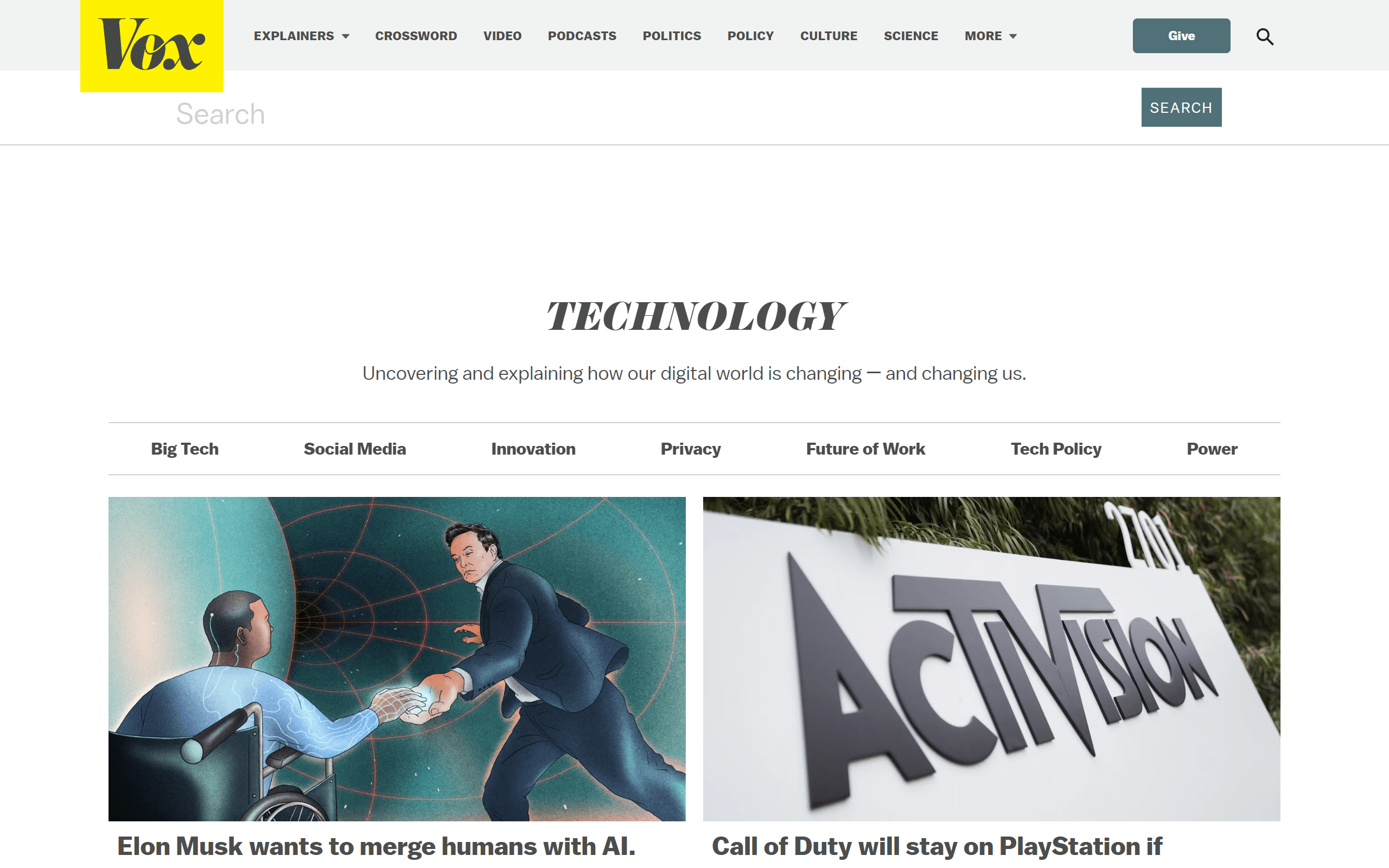Check Out Thought-Provoking Articles on the Best tech blog for Tech Lovers
Check Out Thought-Provoking Articles on the Best tech blog for Tech Lovers
Blog Article
Just How Blockchain Modern Technology Is Revolutionizing Information Safety
Blockchain technology is fundamentally modifying the landscape of data safety and security by introducing a decentralized structure that guarantees enhanced openness and durability. Unlike conventional systems, which depend on centralized information repositories, blockchain distributes data throughout a network, reducing vulnerabilities and solitary factors of failure. The use of sophisticated cryptographic methods makes sure that information continues to be tamper-proof, promoting trust amongst stakeholders and users. As industries quickly adapt to this modern technology, questions emerge about its more comprehensive effect and prospective obstacles. What ramifications does this shift hold for future information security strategies and regulative structures? The answers might stun you (Best tech blog).
The Essentials of Blockchain
Blockchain technology, a revolutionary principle in electronic information management, fundamentally transforms just how info is stored and protected. At its core, a blockchain is a distributed ledger that tapes purchases throughout a network of computer systems, making sure transparency and immutability.
Key to understanding blockchain is the hashing process, which secures purchase information right into a special alphanumeric code. This cryptographic function makes certain that any type of alteration in the transaction information leads to an entirely various hash, consequently protecting against meddling. The agreement device, an additional important component, verifies and validates brand-new purchases with a network of nodes, thus removing the demand for a central authority.
Additionally, blockchain's append-only structure ensures that information, as soon as added, can not be removed or altered. This characteristic guarantees a verifiable and permanent document of deals, promoting trust amongst participants. Because of this, blockchain gives a durable framework for information stability, providing sectors a reputable approach for monitoring and managing electronic information in a secure, clear manner.
Decentralization and Protection
Decentralization, a core concept of blockchain innovation, considerably boosts information protection by distributing control throughout a network as opposed to depending on a particular, central entity. This circulation alleviates the risk of solitary factors of failure, which prevail in standard central systems. By distributing information across various nodes, blockchain ensures that also if one node is compromised, the entire network continues to be protected. This redundancy not only strengthens the integrity of the information yet also boosts its resilience to cyberattacks and system failings.

Moreover, decentralization empowers customers with higher control over their data. Each participant in the network has access to the whole blockchain, enabling them to confirm and audit purchases individually. This transparency promotes trust fund amongst users, as they do not need to count on a central authority to make certain information stability. Overall, decentralization contributes in boosting data safety and security in blockchain networks.

Cryptographic Strategies
At the heart of blockchain innovation, cryptographic strategies play a pivotal function in guarding data, ensuring both confidentiality and stability. These strategies are fundamental to the blockchain's ability to safely tape purchases in a decentralized fashion. Cryptography in blockchain uses a combination of symmetrical and uneven algorithms to encrypt data, making it obtainable just to accredited events - Best tech blog. Public and personal vital sets are main to this process, permitting protected authentication and identity verification without disclosing delicate information.
Hash functions are an additional crucial component, changing input data right into a fixed-size string of personalities, properly producing a distinct digital fingerprint for every block. This makes certain that any kind of effort to change the data will result in a totally different hash, thus keeping the immutability of the blockchain. In addition, digital signatures validate the credibility and integrity of deals, offering a layer of non-repudiation.
The decentralized nature of blockchain, incorporated with durable cryptographic techniques, eliminates the need for intermediaries, decreasing potential susceptabilities. As blockchain innovation develops, innovations in cryptography such as zero-knowledge proofs and homomorphic encryption remain to enhance safety procedures, further strengthening data defense in this innovative electronic ledger system.
Usage Situations Across Industries

In the medical care sector, blockchain makes certain the safe storage space and sharing of person documents, promoting interoperability while protecting sensitive data from unauthorized accessibility. This modern technology encourages individuals with control over their case history and facilitates seamless coordination among doctor.
Supply chain management advantages substantially from blockchain's unalterable journal, which guarantees traceability and authenticity of products from beginning to consumer. By boosting openness, blockchain assists minimize issues such as counterfeiting and unethical sourcing.
Additionally, blockchain's decentralized nature is improving the energy industry by enabling peer-to-peer power trading, where customers can deal excess renewable resource straight. This fosters an extra lasting and efficient power environment.
In the world of copyright, blockchain offers a tamper-proof system for designers to register and secure their works, ensuring rightful attribution and fair payment. These diverse usage situations highlight blockchain's role as a pivotal force in redefining data protection throughout industries.
Future of Information Protection
As we want to the future of information security, blockchain modern technology is poised to play an essential function in protecting digital details. With its decentralized and unalterable attributes, blockchain uses a durable framework for protecting delicate information versus unauthorized accessibility and cyber threats. This innovation makes certain that when information is videotaped, it is almost difficult to change without discovery, hence offering a substantial advantage over conventional information storage space approaches.
The assimilation of blockchain with other sophisticated technologies, such as fabricated intelligence and the Internet of Things (IoT), is anticipated to improve information protection strategies better. By leveraging wise contracts, organizations can automate and implement safety methods, decreasing human error and boosting efficiency. In addition, blockchain's capacity to offer transparent and traceable deals will certainly boost trust and liability in data monitoring methods.
As regulative landscapes develop, blockchain's compliance-friendly nature will come to be significantly pertinent. It can help organizations meet stringent data protection regulations, such as the General Information Security Guideline (GDPR) and the California Customer Personal Privacy Act (CCPA), by supplying proven documents of information processing tasks. Inevitably, blockchain's unique characteristics setting it as a transformative device in the recurring quest to safeguard the electronic world versus ever-evolving cyber hazards.
Verdict
Blockchain modern technology stands for a standard shift in data security by leveraging decentralization and cryptographic techniques to improve this contact form transparency, trust fund, and data stability. Its capacity to get rid of solitary points of failure and utilize consensus mechanisms substantially decreases the threat of scams and read here cyberattacks. This ingenious framework not just encourages individuals with greater control over their information but likewise straightens with governing compliance. As cyber hazards develop, blockchain becomes an essential tool for durable information security across numerous industries.
Blockchain modern technology is fundamentally modifying the landscape of data protection by introducing a decentralized structure that assures enhanced transparency and strength. Unlike traditional systems, which rely on central information repositories, blockchain distributes data throughout a network, reducing vulnerabilities and solitary factors of failing.Decentralization, a core concept of blockchain technology, substantially enhances information safety by dispersing control throughout a network instead than relying on a particular, centralized entity.At the heart of blockchain innovation, cryptographic methods play a crucial duty in safeguarding data, guaranteeing both privacy and stability.Blockchain innovation represents a paradigm change in information protection by leveraging decentralization and cryptographic strategies to boost openness, trust fund, and information honesty.
Report this page